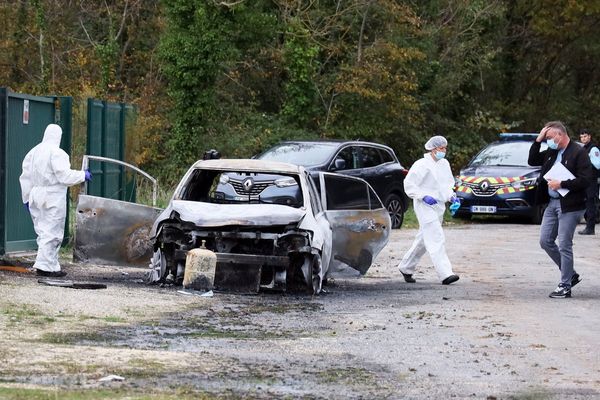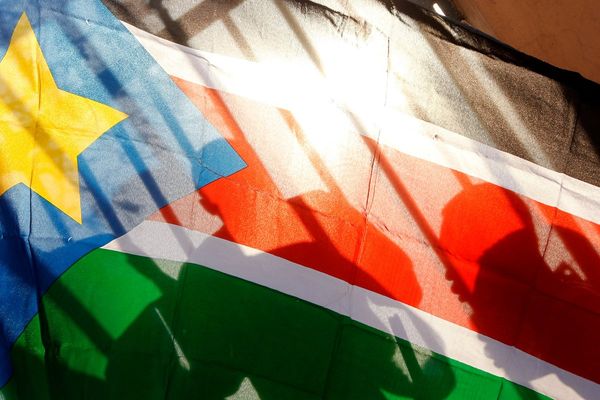Thailand’s populist former prime minister Thaksin Shinawatra has arrived in Bangkok after more than 15 years in exile as his party returned to government in a controversial pact with its military rivals that keeps reformists out of power.
Thaksin – a hugely influential but also divisive politician – began an eight-year jail term on his return, though commentators have noted that his arrival in the country coincides with his party’s return to office and a backroom deal could allow him to escape a full sentence.
Hours after his return, Srettha Thavisin from Thaksin’s Pheu Thai party secured enough support to become prime minister in a high-stakes parliamentary vote. He will form a government with pro-monarchy military-backed parties associated with the former generals who led the 2014 coup.
The young, reformist Move Forward party promised to remove the military from politics and amend the country’s severe lese majesty law after winning an election in May, but it was blocked from forming a government by military-appointed senators.
Thaksin arrived in Bangkok on Tuesday morning, placing a flower wreath and prostrating before a portrait of Thailand’s king and queen at the gate of the airport terminal. He wore a suit with a yellow lapel pin bearing a royal insignia, and appeared only briefly in front of the media, accompanied by his three children, before being driven to court and prison.
Behind fencing outside the airport, crowds of mostly older supporters, unable to see Thaksin, cheered and shouted: “We love Thaksin.” One supporter, hearing the news he had arrived, said: “Our dream has come true.” Many had travelled overnight on long journeys, sharing vans with relatives and neighbours, so they could witness his return.

The supreme court said Thaksin would serve eight years in prison, though there is widespread speculation he will avoid a full sentence. On Tuesday afternoon, the Department of Corrections said Thaksin had undergone a medical checkup and been found to have heart and lung problems, high blood pressure and spine problems.
Thaksin is eligible to apply for a royal pardon during his first day in jail, in accordance with existing rules for convicts.
When asked if Thaksin’s hair would be cut short, as is standard for prisoners, Ayuth Sintoppant, the director general of the corrections department, said there was no rush, but added: “If it’s long, we have to cut it following the rules. But it won’t be as short as other prisoners, we have to consider this respectfully for the elderly. He’s in a vulnerable group.”
Thaksin was ousted by a military coup in 2006 and has lived in exile to avoid legal charges that he has previously said are politically motivated, including a conviction in absentia for corruption. Thaksin’s youngest daughter, Paetongtarn Shinawatra, posted on Facebook saying he was safe and had “entered the legal process”.
Pheu Thai says its decision to form a coalition with its longstanding enemies, the military-aligned parties, was necessary in order to win enough support for Srettha to become prime minister and tackle important issues relating to livelihoods and the economy.
Thailand has been stuck in deadlock for weeks after the pro-reform Move Forward was blocked from forming a governmentshieldsmonarchy, leaving Pheu Thai to lead a fresh effort.
Srettha said he was honoured to be selected as prime minister after winning a parliamentary vote. “I will try my best to fulfil my duties … I will lift up the wellbeing of all Thai people,” he said.

The deal with the military-backed parties has divided Thaksin’s supporters, angering those who say the party has abandoned its democratic principles while others were overjoyed at Thaksin’s return.
His supporters had already begun gathering at the airport from Monday evening, dressed in red and hanging banners that read “Welcome people’s prime minister” and “PM Thaksin, the PM that stays in the people’s hearts for ever”.
Sansuk Termsrisuk, 62, who spoke to the Guardian before her journey from her home in Nakhon Ratchasima, said she would bring chao kuay, a dessert consisting of black grass jelly in syrup, to give to Thaksin as a welcome gift.
“This is the day I have been waiting for. When I talk about it I feel like I want to cry,” she said, adding that she believed that when Thaksin was in power, the economy was much better and she had everything she needed. By contrast, it was hard for her to make a living as a vendor. “I really want to see him, even if I only see his car that’s going to be enough for me,” she said.
Thaksin first came to power as prime minister in 2001 and went on to build a loyal voter base in rural areas of the north and north-east of the country. Policies such as a universal healthcare scheme and a village fund programme to stimulate economic activity in rural areas made a concrete difference to people’s lives, and for years he was unbeatable at the ballot box.
Yet he was strongly opposed by the military-royalist establishment, which viewed him as corrupt and of seeking to upstage the monarchy.
The military seized power in a coup twice, while political parties associated with Thaksin were repeatedly dissolved, and prolonged street protests paralysed Bangkok. A deadly crackdown on Thaksin’s supporters by the army in 2010 left more than 90 people dead.

For many of his supporters, it was unthinkable that Pheu Thai could join with military-linked rivals. “What were we fighting for?” said the activist Sombat Boonngam-anong.
Dr Punchada Sirivunnabood, an associate politics professor at Mahidol University, said the political deal was unprecedented given the gulf in ideologies between the two sides and would ruin Pheu Thai in the next elections. Key party figures had promised during the election campaign they would not do a deal with the generals.
Under election rules that were rewritten after the 2014 military coup, Srettha needed to secure majority support from both the lower house of 500 elected MPs and the 250 senators – who are unelected and were appointed by the military – to become prime minister.
The military-aligned senate previously blocked the reformist Move Forward’s leader Pita Limjaroenrat from becoming prime minister.
Sombat said he believed Thaksin’s return was part of the political deal. He said he sympathised with Thaksin and his desire to return home, but added that “if you consider the damage to the country, [this deal] is not worth it.”.







